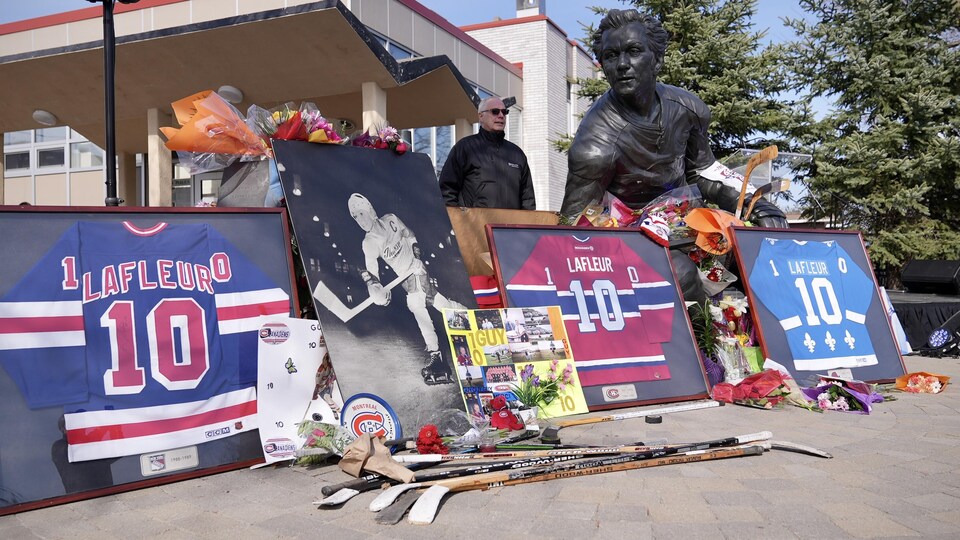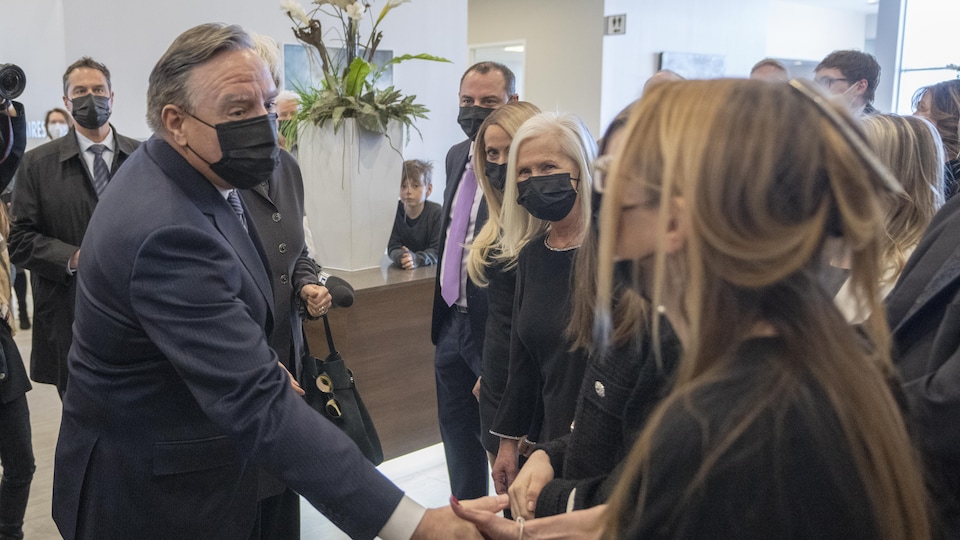Sexism creeps in everywhere, even to death. Among the twenty distinct personalities entitled to the utmost recognition from the state of Quebec at the time of their death, there was no woman, outside the political world.
Whether in the visual arts, cinema, literature, sports, unionism, media or any other sector, no woman has identified herself sufficiently in the eyes of the Quebec Government to be worthy of the highest honor, national funeral, at the time of death.
The portrait looks very different if you are a man, especially if you know how to hold a hockey stick.
On Tuesday, Guy Lafleur will be the third hockey player to have the privilege of being part of a select club of personalities entitled to a national funeral, after Jean Béliveau (in 2014) and Maurice Richard (in 2000), a great showing the value given to this sport in Quebec.
Last Thursday, Prime Minister François Legault also wanted to attend the funeral of another hockey player, Mike Bossy, and he asked that the Quebec flag be lowered in parliament.
To the list of personalities honored and associated with the world of hockey, we should add the name of the journalist and commentator of the Soirée du hockey, Richard Garneau, who became the subject of national commemoration in 2013.
The choice to offer the family of the deceased a state funeral rests with the Prime Minister. It is therefore a political decision, arbitrary, not based on any objective criteria. Regarding the achievements of the deceased, in his achievements, we can assume that the decision was largely based on the popularity of the personality or on a subjective assessment of his contribution to the influence of Quebec. The Prime Minister may also rely on a recommendation from the Chief of Protocol.
Since 1959, in total, approximately thirty people have had official funerals in Quebec, including approximately ten who received the highest awards, state funerals, and approximately twenty personalities offered by national funeral or national commemoration. , the secular version.
No woman had a state funeral, which is usually reserved for prime ministers or presidents of the National Assembly. However, exceptions to this rule were made for two ministers: former Liberal minister Gérard-D. Lévesque, in 1993, and former minister Pierre Laporte, were assassinated in 1970, during the October crisis.
Two female politicians were honored at the time of their deaths. Marie-Claire Kirkland-Casgrain, a pioneer of women’s rights, the first woman elected to the National Assembly, was the only woman entitled to a national funeral in 2016. The death of another pioneer, the former-minister of PQ, host and author Lise Payette were honored with a national commemoration in 2018.
But aside from politics, there is no female name on the list of personalities honored by the state of Quebec at the time of their deaths.
Among the forgotten
In 1996, eager to better honor the memory of unelected personalities who identified themselves in their sector of activity, the government created a new category of state funerals.
The first beneficiary here is the author of The raped man, Gaston Miron (in 1996). Other powerful figures in Quebec literature did not have this honor, such as Anne Hébert (in 2000) or Marie-Claire Blais (in 2021), writers with international influence, or Michèle Lalonde. (in 2021), the author of the famous poem Speak White.
If the painters Jean-Paul Riopelle (in 2002) and Fernand Leduc (in 2014) had the privilege of being offered a national funeral in the first case and a national commemoration in the other case, this is not the case for the painter and glass maker. that Marcelle Ferron (in 2001), signed to Global declineor Joanne Corneau (in 2016), who sells her paintings around the world, to name a few.
Two great Quebec cinema artists were also honored by the State: Gilles Carle (in 2009) and Michel Brault (in 2013). The first had a state funeral, the second a national commemoration.
Still in the field of culture, remember that in 2016, it was the turn of Celine Dion’s impresario, René Angélil, to receive the top awards.
The only union representative to appear on the list, former FTQ president Louis Laberge (in 2002) is also entitled to state recognition.
In a separate category, Quebec offered a national commemoration to Denis Blanchette, a Metropolis employee and victim of the failed attack on Prime Minister Pauline Marois on the eve of her election victory in September 2012.
Even moving into political circles, the ultimate reward is not automatic. Aside from Mmes Kirkland-Casgrain and Payette, those who made their mark there until it attracted state recognition were the father of Bill 101, Camille Laurin (in 1999), the former minister and former leader of the Quebec Liberal Party (PLQ). . ) and former Le Devoir director Claude Ryan (in 2004), former Liberal minister Claude Béchard (in 2010), former Education Minister Paul Gérin-Lajoie (in 2018), all of whom had national funerals, and former PQ Minister of Justice Marc-André Bédard (in 2022), for which a national commemoration is reserved.
The organization of funerals or national commemorations is done in collaboration with the family of the deceased. Typically, the government supports the entire organization, including lying to the state, the religious ceremony or saluting the deceased, as well as lowering the flag on the day of the funeral. The average cost to taxpayers is approximately $ 50,000.
Source: Radio-Canada

